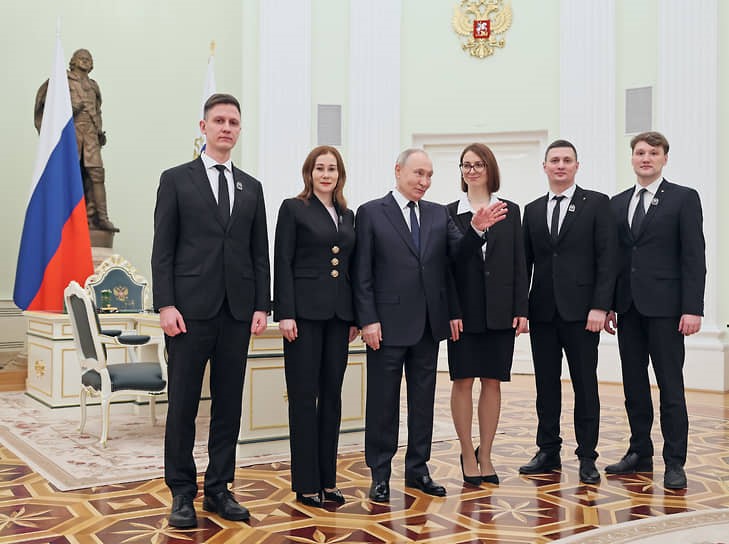Putin's plans for Mars
The president's meeting with young Russian scientists, whom he compared to the ‘generation of our patriots who worked on the atomic bomb’. He also evoked the challenge of reaching the red planet and the need to ‘protect oneself not only from radiation’ in space.
Moscow (AsiaNews) - Russian President Vladimir Putin held a meeting with young scientists, presenting them with awards for their research successes and discussing with them various issues, from bull production to protection from radiation on trips to Mars.
The ceremony is held in Russia once a year, on Russian Science Day on 6 February, when as many people as possible who are dedicated to innovation in the field of science are presented.
Putin recognised that ‘you are following your path today in very difficult times, similar to the generation of our patriots who worked on the atomic bomb’, and it is necessary to ‘take on tasks of historical importance, surpassing foreign technologies to affirm our country's leadership in crucial sectors’.
The president recognises, however, that foreign analogues in the scientific field already exist and continue to be produced, while ‘for the patriotic ones we are rather behind, with all the good will in the world’.
Young scientists are recognised for their willingness to pursue their careers in Russia, even if about half of them go abroad, reduced by Putin to ‘a small part’.
Among the award winners, some of the higher doctorates stand out: Elena Koročkina has developed feed additives for the accelerated reproduction of farm animals; Natalia Čerkašina worked on polymer composites, necessary for further space exploration and long-term protection of astronauts and electronic equipment from cosmic radiation; Konstantin Titov worked on radio-electronic warfare instruments, much sought after on the front line in Ukraine.
The president was very interested in livestock, and was enthusiastic about the fact that ‘we will finally have real Russian bulls’, which could ‘weigh at least a tonne’ thanks to modifications in the processing of genetic material, with the cryopreservation of the semen of goats, rams and bulls.
However, Koročkina was unable to fully satisfy the president's curiosity, as the methods are confidential and ‘of particular importance to ensure the country's food security and reproductive sovereignty’.
When talking about her humble Siberian origins, the girl managed to express her devotion for the Russian Minister of Agriculture, Oksana Lut, an emerging personality of the Putin caste.
Natalia Čerkašina comes from Belgorod, a city on the border with Ukraine that has been heavily involved in the war. The components she has studied have been tested on the International Space Station, especially in the astronauts' cabins, the part most sensitive to cosmic radiation.
Putin applauded the young scientist, in particular for having declared that she ‘reconciles her research with her role as a mother’, thus testifying in favour of the family and of the birth rate, and he then asked her if, thanks to the protections she has experimented with, ‘it will be possible for cows and bulls, or even dogs, to fly to Mars and back’.
Natalia cheerfully replied ‘and why not?’, arousing further enthusiasm in the president, who then pressed the issue: ‘And how long would it take to get to Mars? Six months, there and back?’ Evidently the question is not just one of scientific curiosity, as Putin himself explained that astronauts in low orbit can take advantage of Earth's defence systems, while on the Moon or on Mars it will be necessary to organise ourselves in this regard, not only to protect ourselves from radiation.
He then explained that he was joking about sending bulls to the red planet, ‘we need cows here, but we still need to think about how to transfer biological objects, and the men themselves’; this was also why he explained that he had replaced the head of the Roskosmos agency, appointing a specialist in space matters, Dmitry Bakanov. Is the Kremlin preparing a ‘special space operation’ to conquer Mars?







.png)










